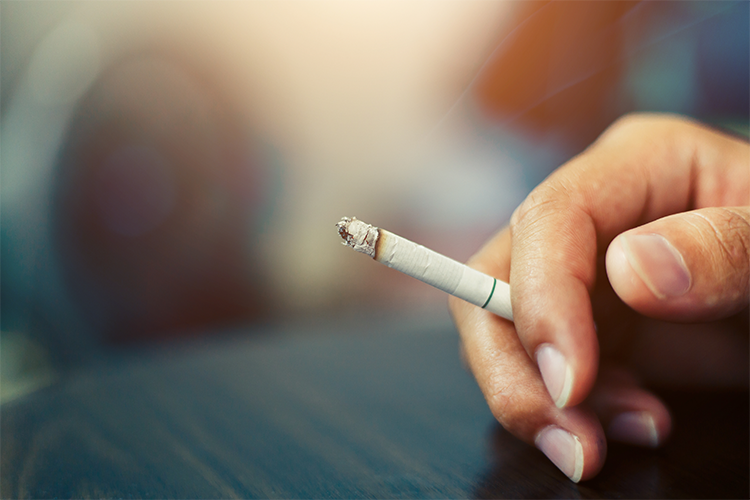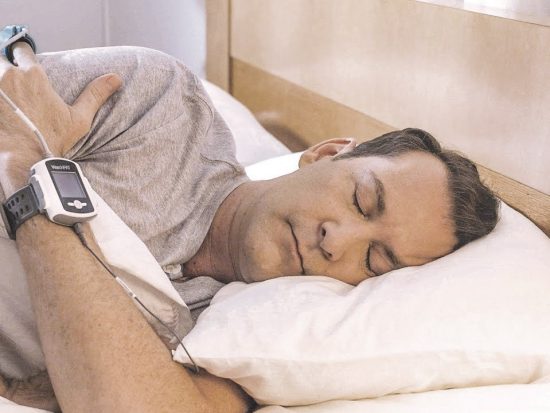Smoking, Snoring and Breathing Worse After Quitting Smoking
You may suffer from a host of issues, and obstructive sleep apnoea may be lower on the list if your smoking, not sleeping, and snoring affects people around you.
Today, everybody accepts that smoking is damaging to health and is a habit best avoided. However, it remains one of the leading causes of preventable death. It is both a stimulant and an irritant, both of which can lead to problems sleeping.
How smoking can affect sleep
Many people may look to cigarettes to help them wind down and de-stress. Yet nicotine can have the reverse effect as a stimulant, especially before you go to bed.
It is widely accepted that you do not drink coffee before trying to sleep as it is a stimulant. This is how you must look at tobacco products containing nicotine, too.
Nicotine reaches the bloodstream quickly, and regular smoking affects your body’s sleep cycle. It can mean frequent awakenings from which it can be hard to get back to sleep.
Nicotine is also an irritant which can cause inflammation in the upper airways. Swelling from the inflammation narrows the airways, making breathing more difficult. The narrower airways obstruct airflow, and the vibrations to the turbulent air as it passes through increase the risk of snoring.
Snoring affects not only the smoker’s sleep but also their partner’s sleep. According to one study of 811 adults, smokers are 2.3 times more at risk of snoring than non-smokers. Research also points to a smoker’s partner having more chance of snoring.
Lack of sleep and loud snoring are also primary symptoms of the most common form of Sleep Apnoea, OSA.
What is Obstructive Sleep Apnoea?
Obstructive Sleep Apnoea (OSA) is a severe disorder in which the airways become blocked while asleep. This prompts the brain to react to the drop in blood oxygen levels due to breathing difficulties. The body is awoken for air, with sufferers sometimes gasping for breath.
Depending on the severity level of an individual’s Sleep Apnoea, these interruptions to sleep can happen numerous times every night.
Common risk factors for Sleep Apnoea are:
- Obesity
- Age
- Being male
- Large neck size
- A family history of the disorder.
However, smoking is known to affect sleep similarly to Sleep Apnoea. It is reasonable to question whether smoking can worsen the disorder’s symptoms.
Does smoking make you snore and cause Sleep Apnoea?
The simple answer is yes; smoking can cause Sleep Apnoea. But how does smoking lead to a sleep disorder?
Smoking is an irritant provoking swelling in the nose and throat, reducing the space left for airflow. This makes breathing more arduous as the throat tissue becomes more irritated and swollen, causing Sleep Apnoea.
Nicotine is a stimulant that relaxes upper airway muscles, narrowing the airway and making it difficult to stay asleep.
Quitting smoking can reduce the severity of the sleep condition, reducing the symptoms.
Smoking Before Bed and Sleep Apnoea
Is smoking before bed or sleeping a good idea? The answer is obvious: no! Tobacco addiction is difficult to stop, but it’s necessary if you lack sleep and have OSA.
Smoking and Snoring
One of the main symptoms of OSA is loud snoring. Studies show snoring is over twice as likely in smokers than in non-smokers. Plus, the more you smoke, the increased chance of snoring.
People with Obstructive Sleep Apnoea already experience collapsing airways as they sleep, becoming blocked. Nicotine is an irritant which produces inflammation and swelling in the airways and can worsen the symptoms of Obstructive Sleep Apnoea.
Nicotine can also relax the airway muscles as you sleep, further restricting breathing and increasing the chances of interruptions to sleep.
The health dangers of Sleep Apnoea and a lack of sleep
Both smoking and Obstructive Sleep Apnoea lead to a lack of sleep. The immediate effects can be daily fatigue, concentration problems, increased irritability and dry or sore throat in the morning.
Such effects from a lack of sleep can harm both professional and personal lives. Productivity at work can drop, while fatigue increases the risk of traffic accidents by falling asleep at the wheel.
In the longer term, several serious health problems are linked to a consistent lack of sleep through Sleep Apnoea. These include:
- Heart disease
- High blood pressure
- Stroke
- Type 2 diabetes
- Liver damage
- Depression
If you have been diagnosed with Obstructive Sleep Apnoea, one of the lifestyle changes your doctor may recommend is quitting smoking, losing weight, avoiding foods that affect your sleep and reducing alcohol consumption.
There is a correlation between the serious health problems which smoking is known to cause and some of those linked to OSA. As smoking may worsen the symptoms of Sleep Apnoea, the frequency of the interruptions to sleep sufferers experience could increase the risk of developing these severe health conditions.
Quitting smoking
By quitting smoking, you can prevent adding to the conditions leading to Obstructive Sleep Apnoea and the numerous diseases to which smoking is linked.
Of course, quitting smoking, in truth, is easier said than done. Nicotine is a highly addictive substance, and careful planning and plenty of support and encouragement from family and friends will be required for any chance of success.
Start by setting a day you will quit smoking, preferably not too far in the future, and let your family and friends know. Involving those closest to you for support, telling them of your intentions, and being determined to prove to them you can do it can be a potent incentive to persist and succeed.
In preparation for the day you have set to quit smoking, make sure there are no tobacco products in the house or close to hand and have some substitute items such as hard candy and sugarless gum available.
Consider joining a support group or taking advice and getting support from a friend or family member who has previously quit smoking.
The day you quit will not be easy, but the nicotine cravings should pass. Stay busy in order to focus your thoughts elsewhere, sip water and take lots of deep breaths, feeling lovely fresh air entering your lungs.
Some people may consider nicotine replacement therapy (NRT) to help them quit smoking. Products include nicotine patches and gum, which help reduce cravings and ease withdrawal symptoms.
Non-nicotine medications are also available, but similar to NRT, it is best to speak to your doctor about what is best for you. Alternative methods such as acupuncture, yoga and hypnosis may be recommended, although there is no strong evidence these actually succeed.
Vaping is an option more people are turning to, though opinion on its use is mixed. While the increase in the use of e-cigarettes may see a fall in traditional tobacco products, they still contain nicotine, which can still affect your sleep.
For free help quitting smoking, visit – NHS quit smoking support
Ensuring better sleep
Sleep is such a vital restorative process for the body that anything impacting your sleep hours can adversely affect your health.
Sleep Apnoea treatments such as CPAP therapy (Continuous Positive Airway Pressure) can be challenging to adapt to initially, but when persisted with, will reduce the disorder’s debilitating symptoms.
On its own or together with OSA, smoking can cause sleeping problems – and consistent lack of sleep can result in serious health issues.
Quitting smoking is not easy, but it is a step towards better sleep and reducing some of the symptoms of Sleep Apnoea.
In-home Sleep Test
If you suspect you may have Sleep Apnoea, the quickest way to find out is to take our in-home sleep test.
Our in-home sleep test is a reliable alternative to the NHS sleep clinic, producing results within two working days.







